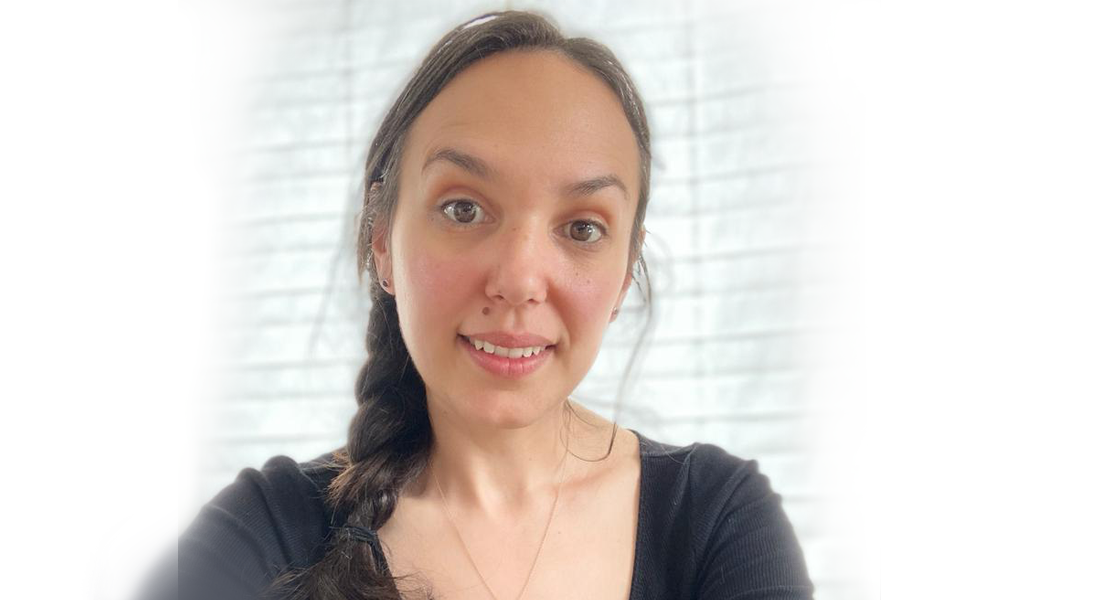Céline Brassart Olsen: Human rights and menstrual health
Meet Céline Brassart Olsen, an Assistant Professor at the Faculty of Law, University of Copenhagen. In this spotlight, Céline presents her research on menstrual health and human rights, and how increased menstrual research, knowledge and awareness can help fight menstrual stigma and promote gender equity.

Tell us about your research
I am a researcher in the field of health and human rights. I am working on the project “Conceptualizing a Human Right to Menstrual Health - Breaking Societal Taboos and Promoting Female Health” (CReaTe). The project explores the intersection between menstrual health and human rights. It looks at the need for more awareness about the menstrual cycle, and for more research and laws on debilitating conditions like endometriosis. It also explores the need for increased regulation of menstrual products (e.g. pricing, content…). I examine these issues in light of women’s rights to health, non-discrimination, science, body literacy and agency. Overall, the project looks at how increasing menstrual research, knowledge and awareness through these rights can help fight menstrual stigma and promote gender equity.
Why is this research important?
Because it tackles the almost universal taboo of menstruation. Apart from maternity, laws rarely takes into account women’s biological experiences. Yet, women have a right to increased research on the menstrual cycle, particularly on painful menstrual conditions. At the same time, the objective of this research is to fight menstrual stigma by creating a positive narrative around menstruation. Few people know that the menstrual cycle is a vital sign of health for girls and women. Beside, menstrual blood, traditionally seen as “impure”, contains stem cells for cell therapy, and can be used as a diagnostic tool for conditions like cervical cancer and diabetes.
States have an obligation to raise awareness about these developments, increase research, and provide adequate training to health professionals to avoid women’s “medical gaslighting” and delayed diagnostics.
What excites you about your work?
I love to explore the connections between law and global health issues. Law and human rights are key to the implementation of health policies. They can be powerful tools to acknowledge groups, which have been historically under-represented. In my current research, I like that several human rights can be leveraged individually and together to raise awareness about menstrual health and to fight menstrual stigma. I love that the topic is complex and multifaceted, and requires that I also learn about biology, culture, sociology, and history.
What achievements do you hope to see within your research field 10 years from now?
I see myself as still working in the field of women’s health. I hope that menstrual stigma will have diminished and that society will see menstruation as normal and healthy, rather than shameful, and menstrual blood as potentially life-saving. I also hope that boys and men will have a better understanding of the menstrual cycle and women’s experiences. I hope in particular, that health professionals will have a better training to address conditions related to the menstrual cycle.
What advice do you have for junior researchers in global health?
Be aware of your own positionality (from geography, to class, and gender) when you conduct your research, and learn from researchers with various cultural backgrounds. Working with researchers from other disciplines is also essential to gain a deeper understanding of global health multifaceted issues. Real interdisciplinary research can be quite challenging but very rewarding!
What is your favourite source of global health inspiration and knowledge?
I draw a lot of inspiration from the humanities, particularly from anthropology of health and feminist philosophy to understand peoples’ lived experience within my research topic. This includes Marion Young’s seminal work on women’s embodied experience of the female body. I also have a keen interest in decolonial approaches to global health and epistemic justice, which question the dominant, Western construction of scientific knowledge. This includes for example, the recent work of Seye Abimbola (the Foreign Gaze, Essays on Global Health).
Contact
Céline Brassart Olsen
Assistant Professor, University of Copenhagen, Faculty of Law
Celine.brassart.olsen@jur.ku.dk
